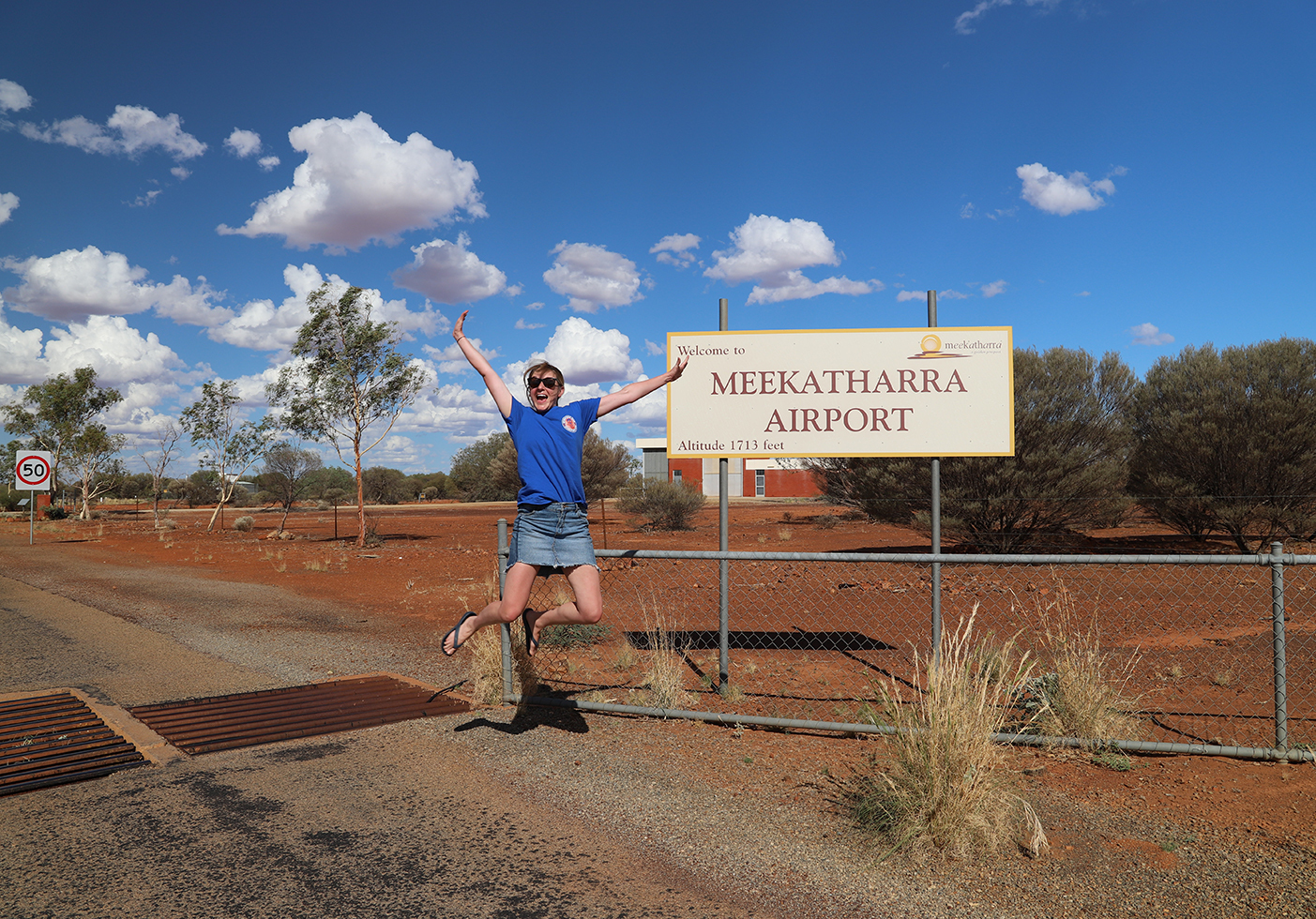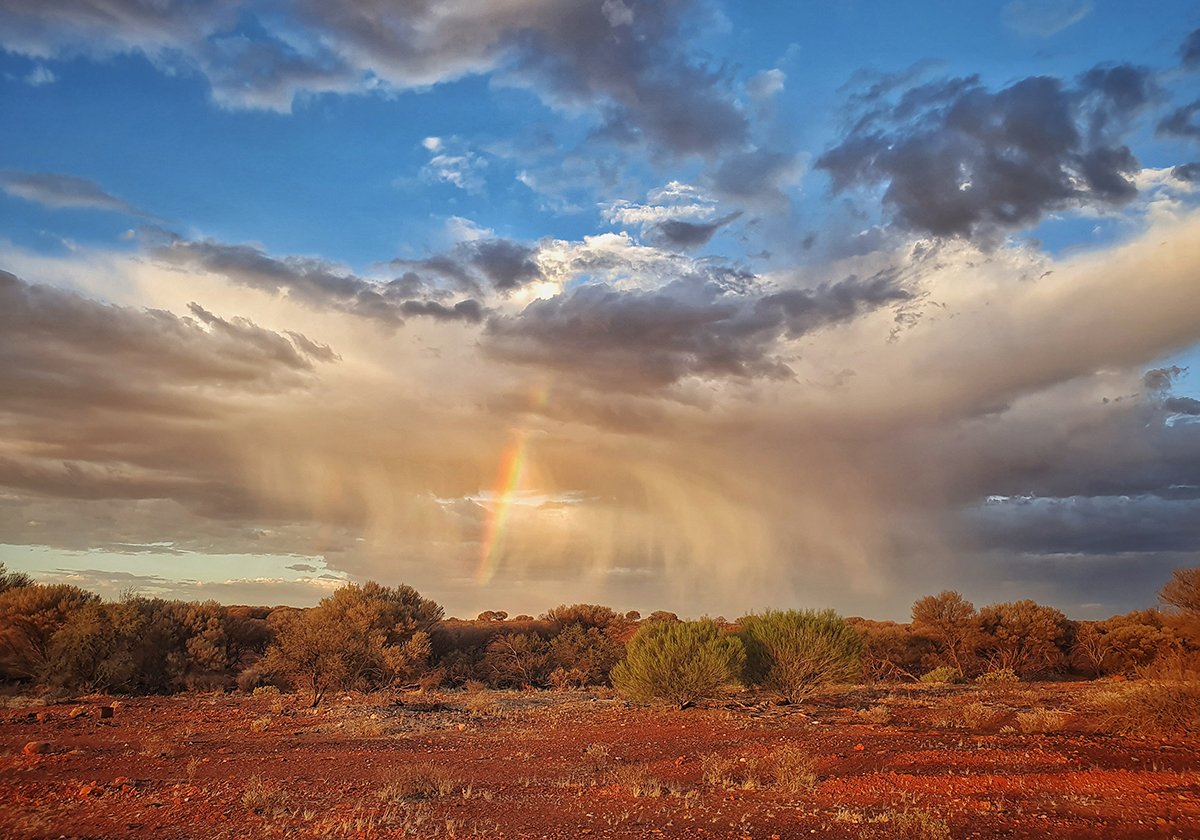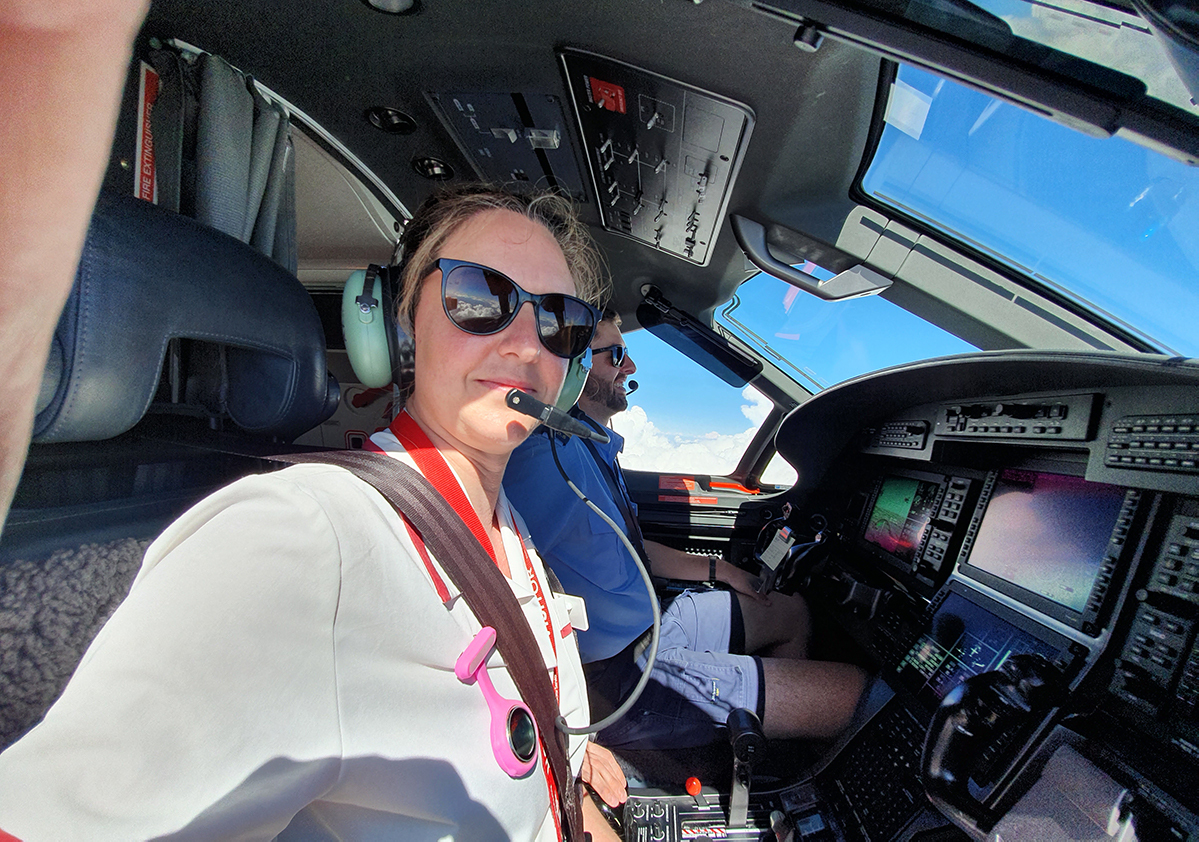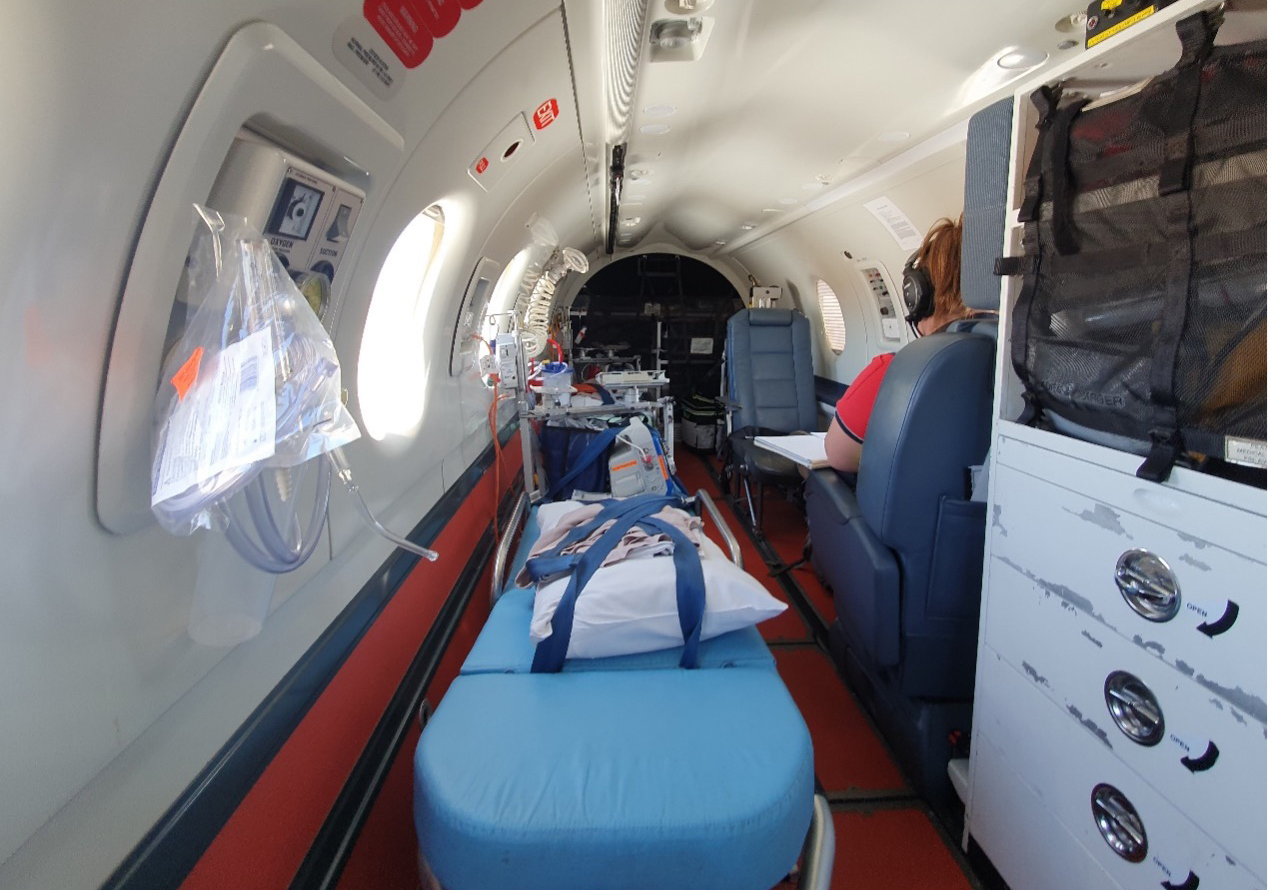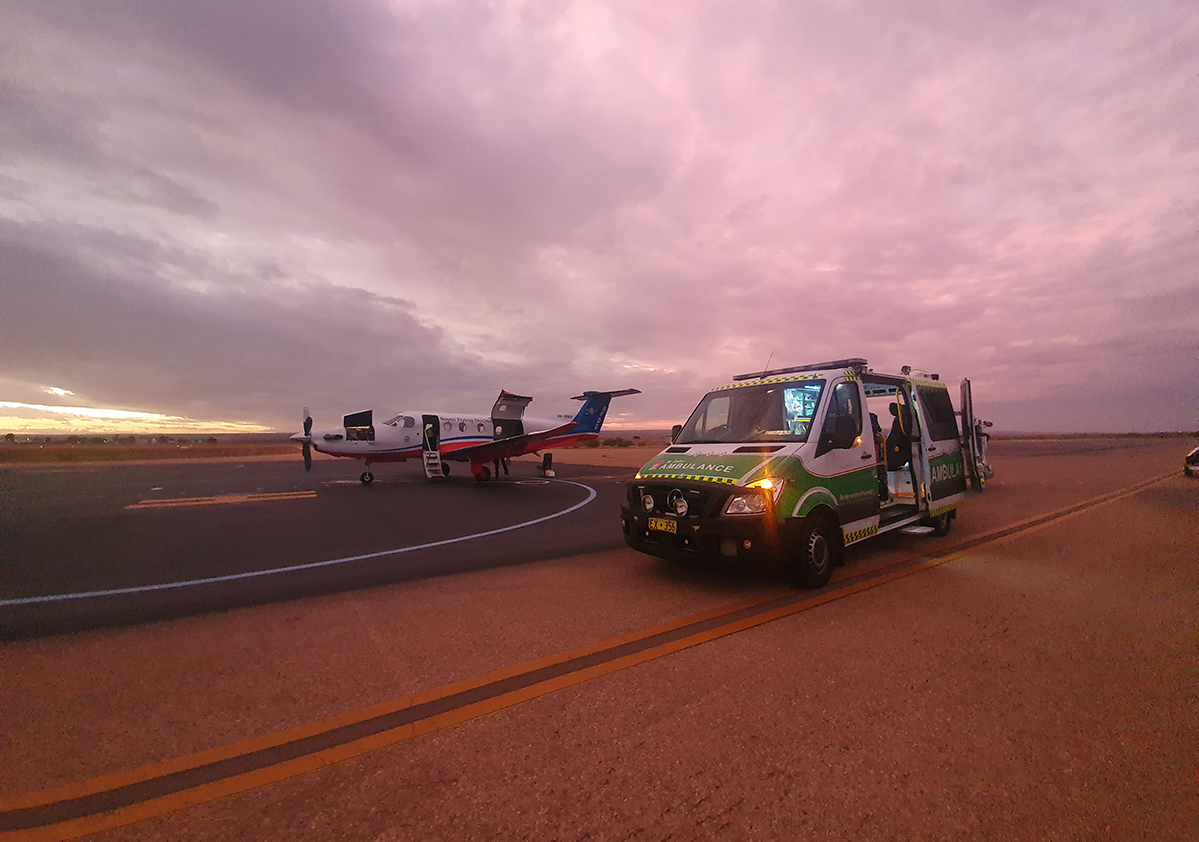This site may not work properly using older versions of Edge and Internet Explorer. You should upgrade your browser to the latest Chrome, Firefox, Edge, Safari, or any other modern browser of your choice. Click here for more information.
Your Stories
This is where we tell your stories, cover topical issues and promote meaningful initiatives.
Health at great heights
Third-year nursing student Sarah Horn took to the air during her clinical placement at RFDS’ Meekatharra base. Despite the challenges of working at altitude and in intense heat, learning cultural and clinical lessons and supporting airborne patients through their highly stressful ordeal made it “one of the greatest experiences” of her life.
I am a third-year nursing student studying at Edith Cowan University in Perth. Since heading down the nursing pathway I always imagined myself working in remote communities as
I have a passion for Aboriginal health as well as critical care and mental health.
When my university put out an expression of interest to complete a four-week placement with the Royal Flying Doctors Service (RFDS) based out of Meekatharra, a small town in the middle of Western Australia with a population of 700 people, of course, I jumped at it.
On the long eight-hour drive there, as the soil got redder and trees turned into shrubs, I was wondering what I had gotten myself into.
However, those feelings quickly disappeared when I was welcomed with open arms into the Meekatharra community and RFDS family.
My first few days of flying were physically exhausting, and I was concerned I would not be able to cope with the rest of the placement.
I hadn’t fully appreciated the effect working at altitude and in extremely high temperatures would have on me.
However, after some pointers from the crew, acclimatising myself and increasing my water intake the shifts got easier.
A usual day involved my preceptor and I being on call from 6am until 10am. If we weren’t tasked by then we would go into the base and do checks, or training until a job came in. The Meekatharra base only has two PC-12 aircraft which are single-engine turboprop aeroplanes. In the back, there are two stretchers, three seats, and not much room to move! Most morning flights were nurse only which meant occasionally we took three patients if one could sit, but most flights were either one or two stretchered patients.
I thoroughly enjoyed the variety of patients I saw and not knowing what each day would bring. My favourite jobs were to very remote communities including Warburton and Giles.
We were always greeted with such warmth and excitement and I loved hearing the stories and experiences of the people living there. I learnt so much about Aboriginal culture and the importance of practising in a culturally-safe way.
I also gained a huge appreciation for the Remote Area Nurses, who often care for very sick people with limited resources and may have to wait hours for the patient to be transferred.
It was very different from what I had experienced so far in metropolitan hospitals, and a huge eye-opener.
I feel incredibly lucky to have been able to work with such passionate and highly skilled nurses, doctors and pilots. Given the complexities of flying in a small aircraft I quickly learnt from the crew how important it was to be prepared for a patient to deteriorate, even when they are hemodynamically stable and look well, such as having medications ready, equipment checked, and a clear plan to ensure the best outcomes.
I also learnt the significance of communicating with the patients about what was happening, where they were being transferred to, and providing reassurance. For many of our patients, this was already one of the worst days of their life, and now they were being flown hundreds of kilometres away from their home in a tiny plane with total strangers and were understandably scared. When you can alleviate a bit of that fear and provide them with the care they need, it’s a really good feeling.
This placement, assisted by a CRANAplus sponsored Undergraduate Remote Placement Scholarship, has been one of the greatest experiences of my life and I wish it didn’t have to end. Not only have I gained invaluable nursing skills, but I’ve also made friends for life, seen places I never could have imagined and confirmed that rural nursing is where I belong.
Find out more about the undergraduate remote placement scholarships offered by CRANAplus.
